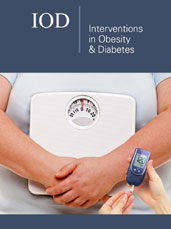- Submissions

Abstract
Interventions in Obesity & Diabetes
Low Carbohydrate Lifestyle Reduces Significantly Insulin Need in Type 2 Diabetes Patients
-
Open or CloseVerkoelen H1*, Govers E2, Maas H3 and Koek GH4,5
1Primary Care Dietitian, Diabetes Nurse Specialist, The Netherlands.
2Primary Care Dietitian, President of Dutch Knowledge Centre for Overweight & Obesity, The Netherlands
3Department of Human Movement Sciences, Faculty of Behavioural and Movement Sciences, The Netherlands
4The Department of Internal Medicine, Division of Gastroenterology/Hepatology, The Netherlands
5School of Nutrition and Translational Research in Metabolism (NUTRIM), The Netherlands
*Corresponding author:Harriet Verkoelen, Primary Care Dietitian, Diabetes Nurse Specialist, Ridder Alartlaan 33, 4116 EH Buren, The Netherlands
Submission: July 31, 2020Published: August 17, 2020

ISSN : 2578-0263Volume4 Issue4
Abstract
Background
A low carbohydrate diet is suggested to be effective in type 2 diabetes to reduce or stop glucose lowering medication. To prove the effectiveness of this dietary change, a low carbohydrate diet was studied in patients with type 2 diabetes on the amount of insulin, HbA1c values and weight loss.
Methods
An observational study in one dietitian practice on the treatment of patients with type 2 diabetes, all on an insulin regimen, with a low carbohydrate diet. Two HbA1c values prior to, and after six months of the dietary intervention were measured. All patients received a dietary advice to consume 30 grams carbohydrates per day in a day menu schedule. Patients visited the outpatient clinic to discuss their results, experiences, and questions. The online treatment group received feedback every week and extra support per mail.
Results
We included 37 overweight type 2 diabetes patients on insulin treatment and evaluated 35 patients after 6 months. The consumption of carbohydrates was 31±10 grams per day. Insulin use was reduced significantly (p<0.001) from 62.6±46.4 IU to 1.4±6.4 IU per day. For 92% of the participants, insulin injections could be stopped completely. Patients lost a mean of 13.3±6.3 kg of weight and the mean HbA1c level declined from 63.4±11.0mmol/mol to 56.9±13.0mmol/mol (p<0.001).
Conclusion
A low carbohydrate dietary lifestyle is effective in improving HbA1c and weight loss and leads to a significant reduction of insulin need.
Abbreviations: HbA1c: Glycated Hemoglobin; IR: Insulin Resistance; T2DM: Type 2 Diabetes Mellitus; CH: Carbohydrate(s); NAFLD: Non-Alcoholic Fatty Liver Disease; NASH: Non-Alcoholic Steatosis Hepatitis; IU: International Units; LCHF: Low Carb High Fat
 a Creative Commons Attribution 4.0 International License. Based on a work at www.crimsonpublishers.com.
Best viewed in
a Creative Commons Attribution 4.0 International License. Based on a work at www.crimsonpublishers.com.
Best viewed in 







.jpg)






























 Editorial Board Registrations
Editorial Board Registrations Submit your Article
Submit your Article Refer a Friend
Refer a Friend Advertise With Us
Advertise With Us
.jpg)






.jpg)














.bmp)
.jpg)
.png)
.jpg)










.jpg)






.png)

.png)



.png)






